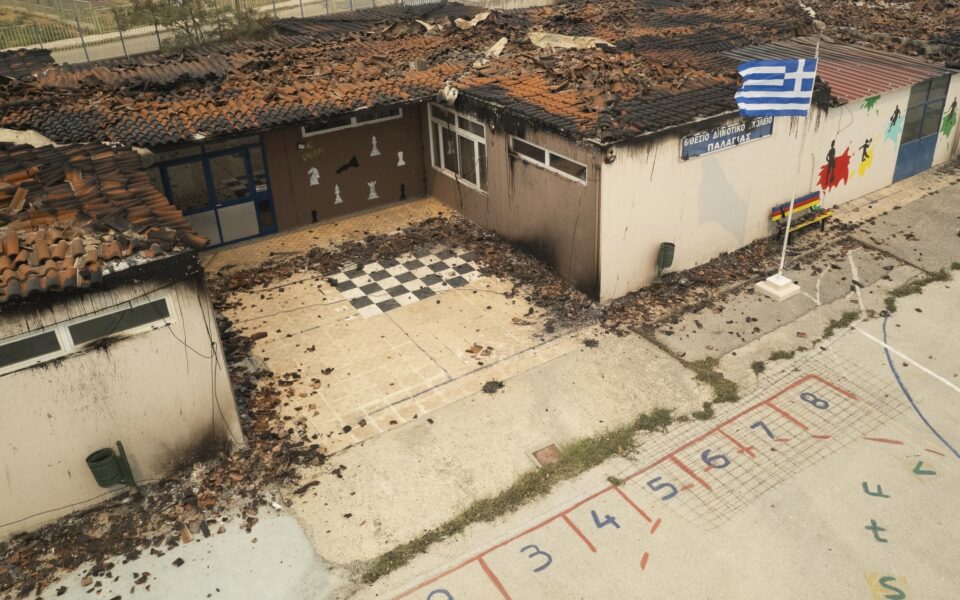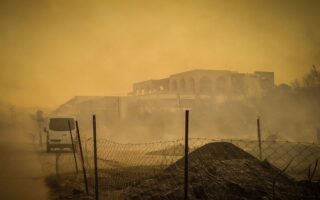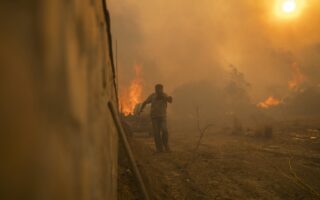Bickering in the ashes

The scenes that unfolded on our television screens on Tuesday morning were truly heart-wrenching. The images from Alexandroupoli in northern Greece, where a wildfire had been raging for the fourth day, along with other affected areas, were really terrifying. They bore an eerie resemblance to apocalyptic scenarios. And below these visuals were three or four windows featuring representatives from different political parties, quarreling like roosters in a cockfight. As I switched between channels, the spectacle remained consistent: loud outbursts, finger-pointing and attributing blame to climate change. On one hand, critics were accusing everything and everyone; on the other, the defenders of the government’s work were tallying up the millions of euros supposedly allocated for fire protection.
In the middle of it all, the citizens grappled with an unfamiliar and frightening reality. Suddenly, each of us felt that a fire could potentially start in our proximity. The realization dawned that our government is powerless in the face of this looming threat, and we are forced to bear the consequences of decades of accumulated inadequacies. What’s even more pressing is the feeling that our urban centers and specific regions will soon become unbearable to inhabit. The combination of climate change and recurrent forest fires is pushing living conditions towards an unsustainable brink.
However, nothing is more disheartening than sensing this impending threat while simultaneously observing politicians engage in their incessant quarreling, as if oblivious to the gravity of the situation. This infuriates and exasperates, almost stripping you of composure. It ultimately leaves you with an overwhelming sense of vulnerability. In fact, it might even push individuals towards more dissenting and anti-establishment paths, a recurring response when “the system” falters to provide resolutions to alarming and perilous occurrences.
Yet, there was another significant occurrence on Tuesday. During such crises, citizens invariably anticipate a structured information flow from the government’s side. This doesn’t necessarily have to come from the lips of high-ranking officials, but rather from institutional figures who can offer an accurate portrayal of the situation, acknowledging the challenges while highlighting the dedicated efforts exerted by competent agencies. On Tuesday, a representative from the Fire Department did make appearances on several channels. However, the portrayal of an organized, institutionalized state presence and communication was conspicuously absent. This was something the average citizen sought, feeling the urgency to pray for an end to the catastrophe and for politicians to desist from bickering and disputes, live on TV.





